

St. Xavier Education Consultancy
New Baneshwor Plaza, Block-“C” , Kathmandu, Kathmandu
New Baneshwor Plaza, Block-“C” , Kathmandu
info@stxavieredu.com.np
01- 4468556 , +977-01-4491829 , 9851007320
About Us
KNOW WHOM WE ARE St. Xavier Education consultancy is one of the leading oldest education consultancy & trusted name in the area of education consultancy field located in the heart of New Baneshwor, Kathmandu, Nepal since establishment year. It is an Education Consultant registered in the “Office of Company Register” under the “Ministry of Education” holding the Registration Number 48025/2064/065. It has been providing professional career counseling advice & guidance to the aspiring international student to study abroad since 2007 A.D. It was established by the educated, experienced qualified & industry specialized personnel with the aim of supporting students for abroad study in various countries;
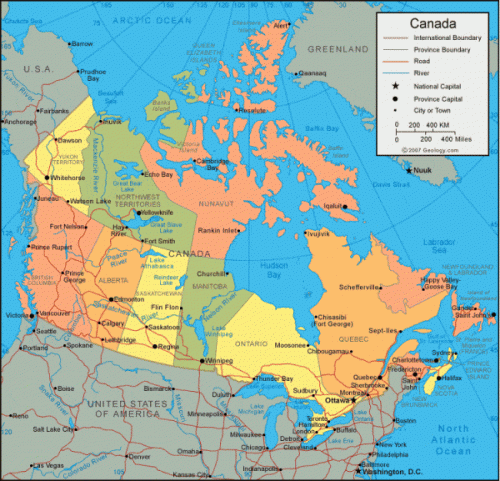
Study in Canada would be a beautiful experience for anyone, literally, since Canada is ranked as the BEST PLACE in the world to LIVE. Because of its access to education, high life expectancy and low crime rates, Canada is a very attractive destination for students throughout the world.
Of more attraction to Nepalese students is the fact that Canada welcomes immigrants with open arms. Thus, those who complete their education can decide upon staying back and complete the immigration process to enjoy the best life in the world! As a country of immigrants, Canada places a high-demand on multicultural diversity.
Moreover, Canadian education costs are relatively cheaper than US and other countries – by at least 30%. Coupled with its low cost of living, Canada is one of the best destinations for international students.
Canada is a bilingual country with two official languages – English and French. Most of the French-speaking inhabitants live in Quebec. However, almost all non-Quebec based universities offer education instruction in English only.
EDUCATION SYSTEM IN CANADA:
The education system in Canada encompasses both publicly-funded and private schools, including: community colleges / technical institutes, career colleges, language schools, secondary schools, summer camps, universities and university colleges. Canadian universities are largely public funded and as a result, are of a consistently high quality, regardless of location or area of study. At the same time, they (the universities) retain a high degree of academic autonomy.
Education is a provincial responsibility under the Canadian constitution, which means there are significant differences between the education systems of the different provinces. However, education is important to Canadians, and standards across the country are uniformly high.
Once students complete elementary school which is up to 8th standard, they would take up High school education comprising of classes 9thto 12th.
There are more than 175 post-secondary institutions that offer various programs such as Certificate, Diploma and Bachelor’s, including vocational and adult-education. These institutions are known as Community colleges, Technical Institute, University Colleges. All these colleges are members of the Association of Canadian Community colleges.
Undergraduate programs are of 4 years duration, except in Ontario, where there is three-year Bachelor degrees and three-year Master’s degrees. In the other parts of Canada, post-graduate programs (Master’s) are of two years duration.
A degree form a Canadian university is recognized world-wide and as a result, international students who graduate from Canadian universities enjoy successful and prosperous careers.
HIGH QUALITY EDUCATION:
Education institutions are not officially ranked in Canada, but you will find quality institutions across the country. When choosing your school in Canada, consider the type, size and location of the institution. If you are interested in a particular area of study, investigate which schools have more to offer in that discipline.
St. Xavier gamut of services provide total assistance and guidance about the Canada education system, studying at all levels in your country of choice and plan your total process, right from pre-application to visa, in a professional and result-oriented manner.
ADMISSION:
Admission requirements vary from one university to another. However, as a general rule, Canadian institutions prefer applicants with very good academic background and decent scores in TOEFL or IELTS for admission. A four-year Bachelor’s degree is required for admission into M.S/MBA programs, with a minimum of mid-B grades (around 70%).
For those with a three-year degree, admission into PG diploma program is possible with a minimum score of around 240 in TOEFL.
PhD programs generally require five years to complete full-time. They usually require a combination of course work, original research and a thesis, which must be defended by oral examination.
One important factor is time. It takes at least one year for the whole admission process to be completed. Most institutions have a January deadline for September intake. Hence, it would be in your best interest to apply at least one year before the start of semester.
Main intake every year commences in September and ends in May. Some universities that run on the semester system conducts courses even in the Summer, and have intake in January (winter)
June to August is the period of vacation.
All the programs in all fields of specialization are available for study in Canadian institutions at all levels.
REQUIRED TEST:
Canadian colleges and universities accept either TOEFL or IELTS scores as proof of English proficiency. Depending upon the institution, the score requirements may vary – between 213-250 for TOEFL and 5.5 –7.5 bands in IELTS.
GRE is required for Master’s level admission, and some universities and programs may need a good score in the Subject Test too. However, for MBA admission, good score in GMAT is essential, in addition to academic performance, other tests’ scores and requirements as prescribed by the B schools individually.
COST OF EDUCATION:
Studying in Canada is not free, but it is affordable. The average cost for a foreign student for one school year (8 months) in an Arts & Science program is C$ 11,903.
ACCOMODATION AND LIVING EXPENSES:
For accommodation, students have a number of options available that can be on-campus or off-campus such as hostels, rented housing, home stay etc.
Cost of living for students in Canada would be between Can.$ 8,000-12,000, depending upon the location of their residence.
FINANCIAL ASSISTANCE FOR INTERNATIONAL STUDENT:
There are limited scholarships available in Canada. They rarely cover the full cost of a study program and they are not always easy to find. Scholarships to international students are available at some Canadian institutions for students with exceptional results. The amount awarded varies from one institution to another and usually covers only part of a student’s education and living expenses. The calendar of each university in Canada includes a complete and detailed list of the scholarships it administers. This information is usually available on school web sites as well. Obtaining a scholarship is very competitive and applications must be made directly to each university along with the application for admission. Community and Career Colleges do not usually award scholarships nor do school boards or most private schools.
There are various organizations within Canada that administer scholarship programs in various countries but they are usually for graduate students and professors who are studying or researching a specific subject; Canadian studies are a typical area for which scholarships are awarded. Students should also check within their home country through public and private organizations for any financial assistance they may provide to.
WORK PROSPECT:
Full-time students registered in a degree or diploma-granting course are allowed to work on the campus of the institution at which they are registered without the need for an employment authorization. This includes on-campus employment for graduate, teaching or research assistants.
Spouses of full-time students are eligible for open or open/restricted employment authorization, depending on medical requirements having been met.
Students whose intended employment forms an integral part of their course of study such as undergraduate co-op programs, some programs offered by career colleges or language schools and some high school programs.
Intake: Feb/May/July/October
Eligibility: 10+2 passed
Requirement: Above 5.5 on IELTS, Above 65 on IBT TOEFL
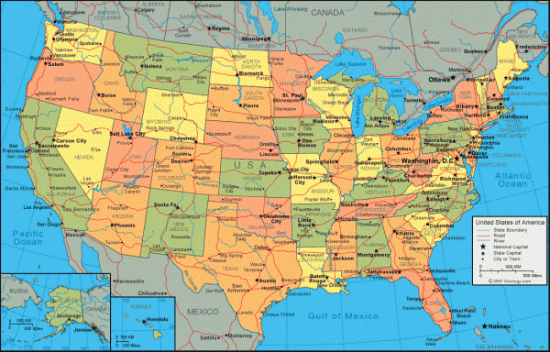
Bachelor’s level education in USA normally starts after the completion of 12 years of primary and secondary education. Hence, education beyond class XII is also known as ‘post-secondary’ education, in USA. Bachelor’s programs are of four years duration, and are offered by different types of colleges.
Liberal Arts colleges offer a general education in Arts and Sciences that develop general knowledge and reasoning ability. Most of these types of colleges are privately owned and have limited number of programs.
Upper-Division colleges are those that offer the last two years of undergraduate programs, which are specialized.
Community colleges are those that offer Associate Degrees of two years duration. On completion of such two-year Associate degrees, students join either upper-division colleges or universities to complete the balance two years for obtaining the Bachelors degree. Most community colleges are publicly owned ones and offer technical programs that prepare students for entry into job market, with Certificate and Diploma programs of six months to one year.
Specialized programs like Engineering are also offered, that are equivalent to the first two years of a bachelor’s degree. These are known as ‘transfer’ programs.
Universities offer a broad range of both undergraduate and graduate degree programs. The size of universities varies greatly – right from a two-bedroom apartment to campuses in thousands of acres! The range and diversity of programs offered are quite large. It is only possible to take up research work in universities and not in any other types of colleges.
ADMISSION:
Most colleges provide admission opportunity to international students without any prejudice. While make admission decisions, some may consider Early admission for those who have not yet completed their 3rd year bachelor’s degree.
Some colleges/universities offer an Early Decision admission, for which the admitted students need to commit to enroll at the college. Normally, such colleges take ‘Early action’ in notifying the students of ‘Early Decision’ based on which the students have to accept the admission offer and make a deposit.
Required Tests:
In addition to very good academic background from Class 10thto 12th, international applicants are expected to have very good scores in TOEFL and SATI, for admission into decent US universities at the bachelor’s level. Some better universities require even scores from SAT Subject Tests, before they make an admission decision. For more details on these tests, please visit, TOEFL, SAT
There are several other issues with regard to Bachelor’s study in USA – like the location, size, majors offerings, admission requirements, deadlines, costs, financial aid, housing, student life, academic programs, latest technology on campus etc.
Cost of Education:
Bachelor’s level education in USA is costlier than Master’s level. Students are expected to take more credits per semester, which leads to an increase in costs.
Average cost of tuition and fees is approx. 10,000-20,000 $ per year, depending upon program, institution and location.
Living expenditure would add up to another 8,000-10,000 $ per year, according to the student’s lifestyle.
Financial Aid is very rare for Bachelor’s level international students. While there are several options like Federal Stafford Loans and others for domestic students, such facilities are not available for non-domestic applicants.
Since Bachelor’s is a four-year program, the costs tend to be very high overall. This is one of the reasons why most students prefer studying from the Master’s level in USA or elsewhere. Of all the international students, only 19% of them went for the Bachelor’s level as against 79% for Master’s level.
It is not easy to support oneself with part-time employment since the program is intensive and students hardly find time to work beyond their study schedules. Also, Teaching and Research Assistantships are available for Master’s level and not for the Bachelor’s. Thus, part-time employment options are limited and returns from the same, meager.
St. Xavier gamut of services provide total assistance and guidance about the USA education system, studying at all levels in your country of choice and plan your total process, right from pre-application to visa, in a professional and result-oriented manner.
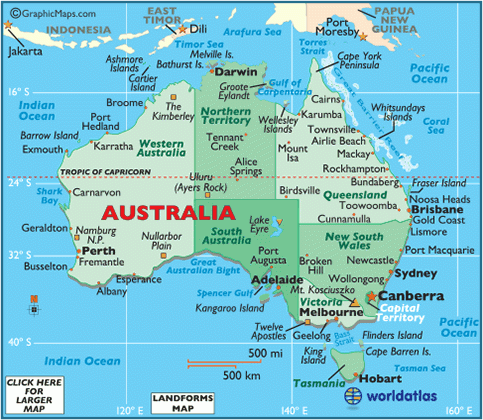
LOCATION: Oceania, continent between the Indian Ocean and the South Pacific Ocean
POPULATION: 20,090,437 (July 2005 est.)
GDP: $642.7 billion (2005 est.)
SIZE: 7,686,850 sq km
LANGUAGE: English, Chinese, Italian
MAJOR INDUSTRIES: Food processing, Chemicals, Steel, Mining, Industrial and Transportation Equipment
WHY STUDY IN AUSTRALIA?
1. Australian universities are widely recognized for excellence in all areas of education and training. It will challenge and reward you academically, personally and professionally. In 2003 more than 105,000 international students from over 180 countries enrolled in higher education courses in Australia, preparing to launch their careers around the world.
2. People from about 200 countries have migrated to Australia, making Australia one of the most culturally diverse countries in the world. It is a safe, friendly, sophisticated and harmonious society in which students can learn and travel in an English speaking country.
3. Crime and political unrest are limited in Australia. Australia has low crime rates and strict gun control laws providing a safe environment. Your study plans and progress are not likely to be upset by political turmoil.
4. Australia’s commitment to offering international students a quality education is backed up by legislation and regulations that govern the international education sector. For example, the Australian Universities Quality Agency (AUQA) and the Australian Quality Training Framework (AQTF) have been set up by the Government to strengthen the quality assurance processes in education and training in Australia. International students in Australia and their parents enjoy a level of service and financial protection that is unrivaled.
5. Australian universities are major producers of research and development. They have pioneered many new ideas and technologies, leading to advances in business, science and industry. The Australian approach to vocational and technical education is now recognized as among the best and most innovative in the world. It has played an important role in Australia’s economic performance, by greatly increasing the skill of workers and contributing to improved productivity.
6. Australia is a dynamic and vibrant country with much to offer. Choosing to come to Australia to further your study will provide you with many opportunities, not to mention a whole new view of the world, an endless variety of new and wonderful experiences, and exciting and progressive education programs. Australia now has over 200 000 international students from over 140 countries around the world. They are enrolled in a wide range of disciplines and at every level of education, including short-term English courses, bachelor degrees and masters degrees, through to doctoral degrees.
TYPE OF QUALIFICATIONS IN AUSTRALIA:
Associate Degree
Bachelors Degree or Bachelors (hons.) Degree
Graduate Certificate or Diploma
Vocational Graduate Diplomas
Masters
Doctoral Degree
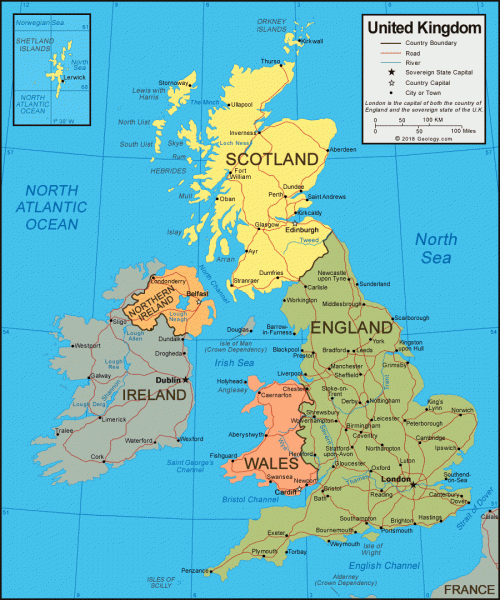
LOCATION: Western Europe, islands including the northern one-sixth of the island of Ireland between the North Atlantic Ocean and the North Sea, northwest of France
POPULATION: 60,441,457 (July 2005 est.)
GDP: $1.867 trillion (2005 est.)
SIZE: 244,820 sq km
LANGUAGE: English, Welsh, Scottish form of Gaelic (in Scotland)
MAJOR INDUSTRIES:
Machine tools, electric power equipment, automation equipment, railroad equipment, shipbuilding, aircraft, motor vehicles and parts, electronics and communications equipment, metals, chemicals, coal, petroleum, paper and paper products, food processing, textiles, clothing, and other consumer goods.
WHY STUDY IN UNITED KINGDOM?
The UK is fast emerging as one of the most popular study destinations for education in the world. A high degree of sophistication, modern facilities and International level education quality: the United Kingdom is just the right place to give your career that global edge. The advantages of studying in UK are:
a. World Class Qualification:
UK qualifications are recognized and respected throughout the world. Your UK qualification will be a solid foundation for building your future, boosting your career and prospects for a higher salary. UK Universities are funded by the government and are continuously assessed by official bodies that grade the standard of their teaching and research.
b. International Experience:
Wherever you choose to study in the UK, you will surely have an enriching and international experience, one that will remain etched in your memory forever and will arm you with a truly global perspective. UK institutions attract students from all over the world, so you will have the opportunity to mix with international as well as UK students.
c. Learn in a modern Environment
In an increasingly globalized world economy, people need special skills and qualities to succeed. UK Institutions are highly modernized and provide excellent infrastructure. d. Value for Money:
UK degrees can take only three years and postgraduate master’s courses only one year ‘ compared with four years and two years in most other countries. This means you will save a great deal on both tuition fees and living costs ‘ and you will be able to start working and earning money sooner. UK degree courses are shorter because they are more intensive, and therefore more efficient in terms of your time and money. UK institutions offer thousands of scholarships and bursaries just for international students, while more than 21, 000 international students receive scholarship funding from the UK Government every year. Under existing work regulations, international students in the UK can work up to 20 hours a week when studying and full time during vacations.
e. Range of courses:
UK Universities and colleges offer more than thousand courses at different levels of education. There is a great flexibility in the way in which a subject can be studied. One of the biggest advantages of studying in the UK is that the option of combining work placements with academic study such as sandwich courses at the undergraduate level and work internships at the post graduate level. Having a work component weaved into the programme of study gives the students cutting edge knowledge and expertise as well as the hands on experience in your area of study, thereby strengthening chances of obtaining suitable employment later on.
f. Ideal base for travel:
UK consists of three countries and a province: England, Scotland, Wales and the province of Northern Ireland. Each has its own distinctive history, landscape and modern culture. And, because they’re all within easy reach of one another, they’re easy to explore. Once you are in UK, it’s easy to see the rest of Europe. UK is the hub for business in Europe.
TYPE OF QUALIFICATIONS IN UNITED KINGDOM:
Various qualifications offered by UK Universities and Colleges
First Degree (Bachelors Degree)
Sandwich Courses: Where the coursework is accompanied by the practical work.
HND (Higher National Diploma)
Vocational Courses
Postgraduate
Research (PhD.)
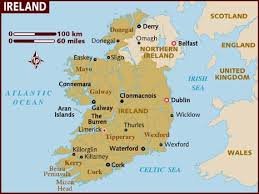
Ireland’s worldwide reputation for high quality education is built on the soild foundation of commitment excellence. Ireland is a beautiful Island;join the growing numbers of Internationals students choosing Ireland their potential.
Intake: Feb/Oct
Eligibility: +2 can apply
Requirement: Above 5.5 on IELTS
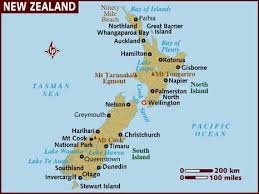
Next step is to apply to the selected Universities. We assist you with the filling of application forms, guidance in preparation of Recommendation Letters, Statement of Purpose. Along with the application we also send our recommendation letter to the University highlighting the strengths of the student and why he/she should be admitted. The admission tutor considers this letter in their decision making. We keep a proper follow up with the Universities ensuring you a quick response.
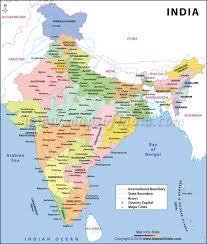
The Indian Educational System has conquered a strong position in international arena, India is a popular destination for higher educational amongst foreign students as the country has variety of academic courses including BBA, MBA, BCA ,B. Tech, M. Tech, Nursing, Pharmacy, CA, Diploma, BHM and many more.
A large number of students fly to India every year from all corners of the globe to satisfy their desire to earn academic degree .Studying in India, the second largest higher educational network in the World ,is an enriching experience in itself with higher practical basis. There are universities focusing on the study of medicine, arts and language, journalism, social work ,business, commerce, planning, architecture, engineering, and other specialized studies. Most Indian universities teach in English Medium and conduct special language classes for those weak students in English.
Top Ranked Universities and colleges at:
Banglore
Deradhun
Jalandhar
Delhi
Simla
Chandighadh
Agra
Pune
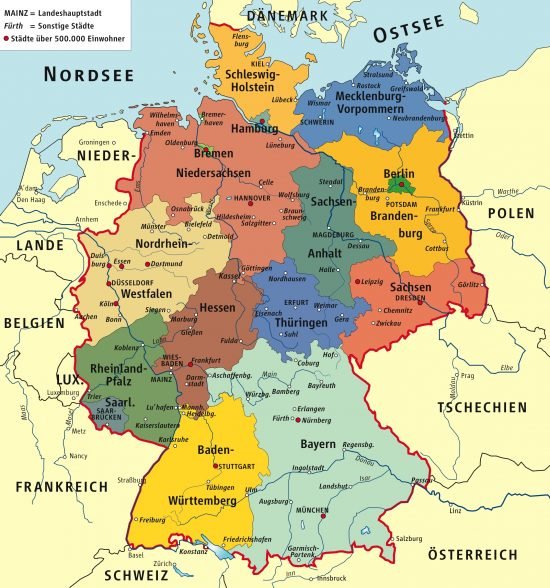
Studying in the country of poets and philosophers. Culturally, everybody can find something he likes. The most populous country in the EU is a multi culture society .Not just in the big metropolis Berline , Hamburg, Cologne or Munich but also in the smaller cities people from all places of the world are forming the image. Across the republic there are festivals whose publicity goes far beyond the region: carnival in cologne, wine festivals in the Palastine and drinking beer at the Oktoberfest in Munich. Also the German landscapes is multi sided Swimming in the North Sea, a boat trip on the Rhine or hiking in the Alps.
Intake: Jan/Oct
Eligibility: 10+2 and above
Requirement: Above 5.5 on IELTS with German language
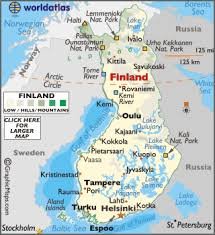
Finland is a human-scaled, cost country ,with cities and towns designed cars.for people, not just cars.Rush-hours are a rarity.Higher education institutions are highly autonomous, but largely funded by the Ministry of Education and culture.These efficiently managed institutions provide a wide range of high quality programmers in English for exchange and degree students at all levels of educations.
Intake: Feb/Oct
Eligibility: 10+2 and above
Requirement: Above 5.5 on IELTS, Above 65 on IBT TOEFL
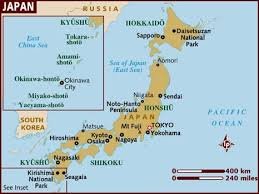
Japan is in the continent of Asia . its country is made up of many islands. Since the sun rises in the east, Japan is often called” The Land of The Land of The Rising Sun.”The Japanese refers to their country as “Nippon” or Nihon “which means “source of the sun”.
The capital of Japan is Tokyo. In fact it is one of the largest cities in the world. it is modern, very busy, and extremely crowded. In fact, today, Japan is a modernized country. They have factories, tevlevisions, radios, cameras, and other familiar objects.
Japan has a population of about 127 million, of which 99 percent are Japanese. Located in the Far East, Japan is an archipelago of more than 6,800 islands stretching about 1,800 miles from northeast to southwest. its latitudinal range is the same as Quebec, Canada, all the way to key west,U.S.A.its Land mass is slighty smaller than the state of California or Sweden, with almost 75% of the land consisting of mountains.
There are four major islands :Hokkaido,Shikoku, and Kyushu.Honshu , the largest and most populated and home to Tokyo, Kyoto, and other major cities, is subdivided into five geographical regions.From north to south,they are Tohoku,Kanto,Chubu,Kinki, and Chugoku.Hokkaido, in the north, is subarctic and boats spectacular mountain scenery wide opening plains,While southern Kyushu is subtropical and is Famous for its.balmy weather, beaches, and hot-spring resorts. Shikoku, connected to Honshu via three bridges yet off the beaten path for most foreign tourists, is known for its many Buddhist temples and views of the Seto Inland Sea.
Economy
The Japanes economy is one of the third largest in the world. Only the USA and China have a higher GNP.The Japanese currency is the Yen.
Education
When Japan opened herself to the world in 1868, one of the government’s high priority was catching up with Western standards in science and education .The Japanese education system was reformed mainly according to the German and French model which experts regarded as most suitable and advantageous.
After the Second world war, the Americans reformed the Japanese education system after their own which consists of six years of elementary school, each three years of junior and seniors high school and four years of university or two years of junior college.
Compulsory education includes elementary school and junior high school. Over 90 %of all students also graduate from high school and over 40% from university or junior college. At universities the percentage of male students is higher than of female students while the opposite is the case at junior colleges. The number of graduate university students is relatively low.
The Japanese school year starts in April and consists of three terms, separated by short holidays in springs and winter, and a one month long summer break.
A characteristic of the Japanese school system are entrance exam and with them a high competitiveness among students. Most high schools, universities , as well as a few private junior high schools and elementary schools require applicants to write entrance exams. In order to pass entrance exams to the best institutions, many students attend special preparation schools (juku) besides regular classes, or for one to two years between high school and university (yobiko).The most prestigious universities are the national University of Tokyo and University of Kyoto, followed by the best private universities.
Process
The general case of studying in Japan begins with a student first enrolling for a Japanese Language course for at least six months in Nepal. Once this course is completed successfully the student gets an admission into a school or college in Japan where they need to study Japanese Language for another one or two year depending on their proficiency level in Japanese Language.
Japanese Language
We offer Japanese Language course to our students who want to study in Japan or just want to take Japanese Language classes for any other purpose. We provide the best teacher in the entire city for Japanese Language classes.
1. Native Professional Japanese Language Teachers who are certified by the Japanese Government to teach Japanese Language to Foreign students.
2. Digital Lab ,On-line communication practice through hi-tech software.
3. Library facilities
St.Xavier education consultancy always believe in providing right guidance & direction to the aspiring students.we always give more focus on student subjects/desired course of study and countries of interest .the student evaluation is based an students academic performance ,health condition financial status and position of family &after careful analysis of over all status of applicant & proceed application of enrollment in foreign colleges &universities.
We believe that every students have their own profile, preference ,social,economic background, experiences &objective. Our focus will be to give right decision to shape for their reason to study abroad .we always focus on right career counseling not only admission/enrollment counseling .
We have certified educated,trained &experienced education counselor who are qualified for both individual and group counselling sessions in Favor of students.more ever,we have been conducting various in house seminars& information session,workshops motivational program,student –college/university representative interaction program with foreign colleges &universities.
St.xavier education consultancy always belire in making changes in our organization as per changing education enivironment .as per the demand & persent market scenario of students we conduct variouspreparation classes i.e lelts, TOEFL,pet…..It is one of the best test preparation center focus on producing qualitative &qualified condiate which forther helps them to easily get enrollment to study invarious foregin colleges & universities.We study 250-300 students per year in different flexible time.Some of the key strengths & benefits of joining st. Xavier edu.con for test preparations are.
a)Comberidge &british counal certified instructor
b)Small size classroom with well-equipped equipment &materiau
c)special classes for the students who basically weak,
d)flexible class schedule with affordable &cheaper feel,
e)best scorer I lelts in 2018/2019
f)exclusire course materials test tips & techniques,
g)peacful learning environment
h)library and e-library facilities,
i)easy accers form any places near kathmandu city
the tutor at st.xavier education consultancy are certified ,traired, experienad ,proyersional &friendly .they motivate participatory learning ,group discussion &interaction among students to make learning procers creative innoviatire ,economic,eftectire,intresting &productive.
IELTS class room photo
IELTS student &tutor photo
Best IELTS scorer photo
Library photo
Mock test photo of students
Interaction program with tutor photos
St.xavier has earned a good reputation and trust from the students parents ,government stakeholders &good image among foreign colleges & universities .this factors motivates us to be more strong enough to accept allergens &covert challenges into oppertunities.this would forther helps to earn competitive bengits at the some time changes in overall performance of organization turn this has helped the students with the choice of direrse study couse optiors form among a vast orange of repoted colleges in australia ,newzealand,canada,uk usa frana, denmark cyprus many more europe countries.









